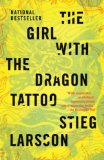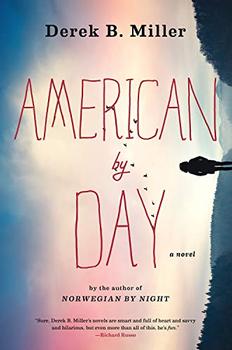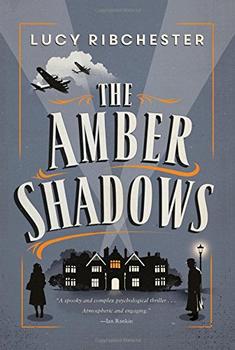Summary | Excerpt | Reading Guide | Reviews | Beyond the book | Read-Alikes | Genres & Themes | Author Bio

On one level, The Girl
with the Dragon Tattoo
by Stieg Larsson is a
traditional "closed-room"
mystery, albeit an
exceptionally well-written
one. It compares favorably
with the works of Agatha
Christie and Dorothy Sayers.
The characters are
well-drawn, there is a
profusion of suspects, and
the reader is presented with
lots of logical, thorough
detective work.
Additionally, there are
enough twists and turns to
prevent the story from
becoming dull or
predictable. Simply viewed
as a mystery novel, the book
is a fine addition to the
genre.
Like an onion, though, it
has other layers beneath its
surface. The reader finds a
complex commentary on
Swedish society underlying
the main plot. The
criticisms Larsson levels at
the Swedes can be easily
applied to other Western
cultures, making the book
relevant to a wide audience.
He takes on topics such as
violence against women,
corporate corruption, and
the unwillingness of
journalists to tackle
controversial issues. He
also discusses the
individual's responsibility
for his or her own actions,
regardless of circumstances,
as well as what it means to
be "moral" or "ethical." The
author manages to integrate
his observations in a way
that prevents these themes
from becoming overbearing or
preachy; he doesn't whack
the reader over the head
with his views.
The highlights mentioned in
the previous paragraphs
would be enough to make
The Girl with the Dragon
Tattoo a winner, but
what really makes the novel
an over-the-top, must-read
book is Larsson's creation
of an utterly unique
character: a young female
hacker named Lisbeth
Salander. All of Larsson's
characters are well-drawn
and multidimensional; his
other protagonist, Mikael
Blomkvist, has exceptional
depth and measures up to the
likes of Hercule Poirot and
Lord Peter Wimsey. Salander,
though, is far from your
typical investigator. She's
not even your typical
hacker-chick. She's dark,
anti-social, and completely
ethical, but by a standard
few people would espouse.
She believes that the
punishment should fit the
crime, but feels it's
detrimental to justice – at
least her idea of justice –
to involve the authorities.
The reader finds this
character's attitudes and
actions simultaneously
shocking and admirable.
Remarkably, Larsson is able
to imbue Salander with a
huge amount of personality
without allowing her to
become a caricature. He
achieves an ideal balance
here, and the result is a
completely unforgettable
heroine.
Larsson's locale
descriptions are meticulous
and more than adequate for
the reader to develop
detailed mental images of
the places discussed in the
book. They are, however, not
integral to the story but
merely the backdrop - the
book could as easily have
been set in upstate New York
as Sweden. This does not
detract from the novel in
any way, instead it broadens
its appeal.
Sometimes when reading a
novel, awkward phrasing or
pacing of sentences signals
too clearly that it has been
translated from another
language. Such is not the
case with Steven Murray and
Reg Keeland's excellent
translation of The Girl
with the Dragon Tattoo -
readers who may be
apprehensive about tackling
a book in translation need
not be concerned.
While the mystery at the
center of The Girl with
the Dragon Tattoo wraps
up very satisfactorily, the
novel itself does not.
That's not to say that the
book's ending is poor; it
is, in fact, one of the most
appropriate endings this
reviewer has encountered.
The problem is that it will
without doubt leave the
reader wanting more.
Fortunately for his fans,
Stieg Larsson completed two
more books in the Millenium
series before his untimely
death. This is one book that
lives up to its hype. Highly
recommended.
First Impressions
Twenty-two BookBrowse
members have reviewed this
book rating it an overall
4.5 on a 5 point scale.
Read their comments here.
The Millennium Series
The initial entry in the
series, Män som hatar
kvinnor ("Men Who Hate
Women"), was awarded the
prestigious Glass Key award
as the best Nordic crime
novel in 2005. It was
published in hardcover in the UK in early
2008 as The Girl with the
Dragon Tattoo. USA publication in hardcover followed in September 2008, with the paperback publishing this week (July 2009).
The second book in the
trilogy, Flickan som
lekte med elden (The
Girl Who Played with Fire),
won the Swedish Crime
Fiction Academy Award as the
year's best Swedish crime
novel of 2006. It was
released in the UK in
January 2009 and will be
available in hardcover in the USA and
Canada later
this month (July 2009).
Luftslottet som sprängdes
("The Aircastle that Blew
Up"), is scheduled for UK
publication in October 2009
with the title
The Girl Who Kicked the
Hornets' Nest.
Presumably it will be
released in the USA in the
summer of 2010.
A movie of the first book has already been released in Scandinavia (Denmark, Norway, Sweden and Finland); and the second will be released in September 2009, with
Michael Nyqvist as Blomkvist
and Noomi Noren (aka Noomi
Rapace) as Lisbeth Salander.
It is not clear when or if
these films will be available
in English speaking markets.
On his death, Larsson left
behind a 200 page manuscript
for a fourth book but, while
his heirs and Eva Gabrielsson, his
partner of more than 30
years, are in a long-running
dispute over his estate, as
of last week it seems they
are agreed that there will
be
no fourth book.
According to the
supporteva.com website,
Larsson and Eva had planned
that there would be ten
books in the series.
![]() This review was originally published in The BookBrowse Review in October 2008, and has been updated for the
July 2009 edition.
Click here to go to this issue.
This review was originally published in The BookBrowse Review in October 2008, and has been updated for the
July 2009 edition.
Click here to go to this issue.

If you liked The Girl with the Dragon Tattoo, try these:

by Derek B. Miller
Published 2019
A gripping and timely novel that follows Sigrid - the dry-witted detective from Derek B. Miller's best-selling debut Norwegian by Night - from Oslo to the United States on a quest to find her missing brother.

by Lucy Ribchester
Published 2017
During the dangerous days of World War II, Honey Deschamps is spending her days transcribing decrypted messages at Bletchley Park, when she starts to receive bizarrely coded packages. When everyone is keeping secrets, who can you trust?
Your guide toexceptional books
BookBrowse seeks out and recommends the best in contemporary fiction and nonfiction—books that not only engage and entertain but also deepen our understanding of ourselves and the world around us.